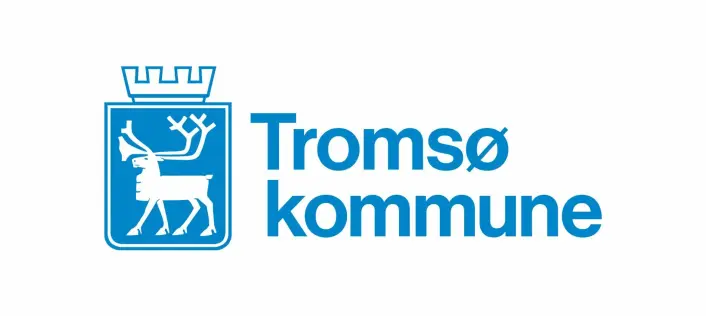Action plans and case manager support may hasten recovery of symptoms following an acute exacerbation in patients with chronic obstructive pulmonary disease (COPD)
Blikk på forskning i Fysioterapeuten 7/2012
Blikk på forskning utarbeides i samarbeid med Journal of Physiotherapy, som trykker forskningspresentasjonene under betegnelsen Critically Appraised Papers, CAPs.
Synopsis
Summary of: Trappenburg JCA et al (2011) Effect of an action plan with ongoing support by a case manager on exacerbation-related outcome in patients with COPD: a multicentre randomised controlled trial.Thorax66: 977–984. [Prepared by Kylie Hill, CAP Editor.]
Question: In patients with COPD, does an action plan (AP) with support from a case manager lead to earlier contact with healthcare professionals and faster recovery from an exacerbation?
Design: Randomised, controlled trial with concealed allocation. Patients were unaware of the study aims.Setting: 8 regional hospitals and 5 general practices in Europe.
Participants: Adults with COPD, aged > 40 years, with a substantial smoking history, and using bronchodilators were eligible. Exclusion criteria were a primary diagnosis of asthma or cardiac disease, or presence of disease that would affect mortality or participation (eg, confusion). Randomisation of 233 patients allocated 111 to the intervention group and 122 to the control group.
Interventions: Both groups received usual care and brief nurse-led education about management of their disease. In addition, the intervention group received an individualised written AP, encouragement to contact the nurse for more information if needed, and two standardized telephone reinforcement sessions at 1 and 4 months following randomisation. The nurse, in consultation with physician, was able to provide a course of corticosteroids and antibiotics.
Outcome measures: Patients recorded their symptoms daily and completed the 24-hour Clinical COPD Questionnaire (CCQ) every 3 days, for 6 months. The primary outcome was time to recovery of health status following an exacerbation, defined as a return to pre-exacerbation CCQ scores. Secondary outcomes included the time delay between exacerbation onset and exacerbation-related healthcare contact and exacerbationrelated self-efficacy.
Results: CCQ data were available for 216 patients. The mean symptom recovery time was shorter in the AP group by 3.68 days (95% CI 0.04 to 7.32). Patients in the AP group with an exacerbation sought treatment 2.9 days earlier (95% CI 2.4 to 3.5) than patients in the control group. The change in self-efficacy was higher in favour of the AP group. There were no differences in the number of exacerbations or healthcare contact between the groups.
Conclusion: An AP with case manager support enhanced early detection of exacerbations and expedited recovery from symptoms following these events.
Commentary
Self-management places patients and healthcare professionals in partnerships. Patients are trained to be in charge of their day-to-day illness management, while healthcare professionals assist with decision-making and goal achievement. Specialised nurses or other allied health professionals often act as case managers in self-management programs for patients with chronic obstructive pulmonary disease (COPD). Case managers can be contacted by patients if they feel they need to. This well performed study provides additional evidence for the use of individualised written action plans for exacerbations with ongoing case management in people with COPD. The authors hypothesised that in the event of an exacerbation, an action plan that aims at early contact with healthcare providers would promote prompt intervention, leading to faster recovery in symptoms and health status.
The study shows positive results for health status and symptom recovery, without an increase in the proportion of exacerbations reported to healthcare providers. The latter is somewhat surprising, but the authors indicate that a possible explanation can be found in the increased self-efficacy (and possible better self-management strategies) and milder exacerbations in the intervention group. In contrast to other studies (Bourbeau et al 2003, Effing et al 2009, Rice et al 2010) overall health care use did not change. Whereas stand-alone COPD exacerbation action plans are used with increasing frequency, evidence is accumulating that the effectiveness of these plans without case manager back-up and self-management training is very limited (Walters et al 2010). Self-management training aimed at behavioural change along with case-manager assistance are the strategies most likely crucial to the success of action plans. This study underlines the usefulness of action plans during COPD exacerbations when coupled with case management and implemented as part of straightforward self-management training programs for patients without severe co-morbid diseases.
Tanja Effing, Department of Respiratory Medicine, Repatriation Hospital, Adelaide, Australia
References
Bourbeau et al (2003)Arch Intern Med163: 585–591.
Effing et al (2009)Thorax64: 956–962.
Rice et al (2010)Am J Respir Crit Care Med182: 890–896.
Walters et al (2010)Cochrane Database Syst Rev5: CD005074.






















